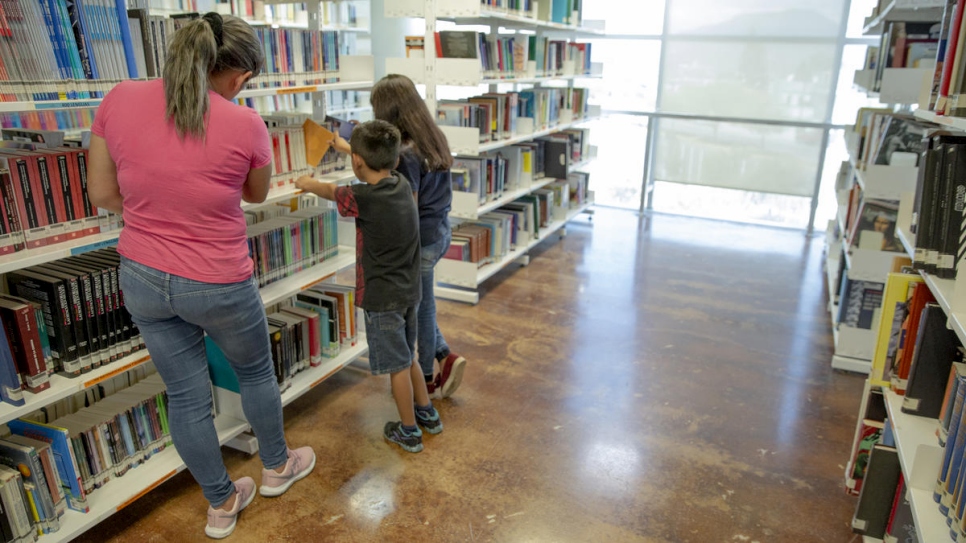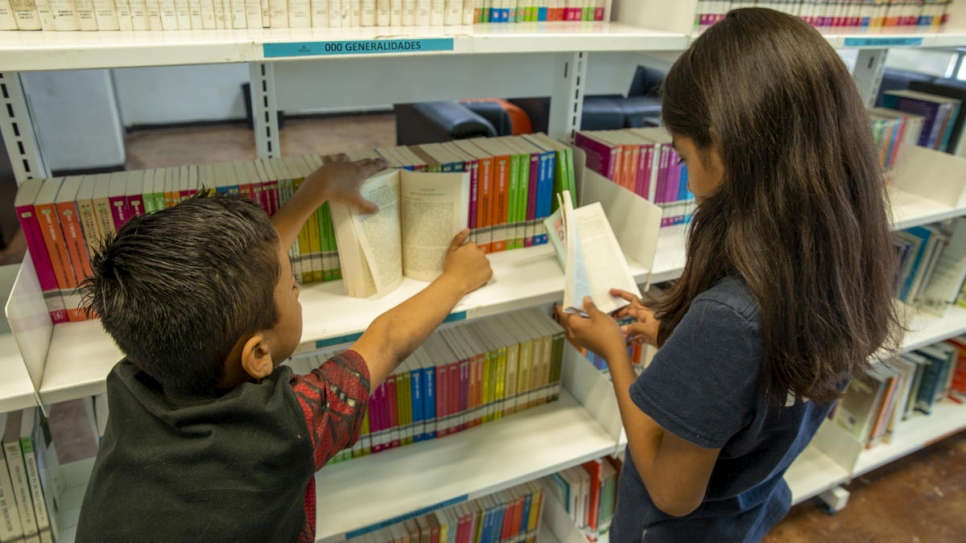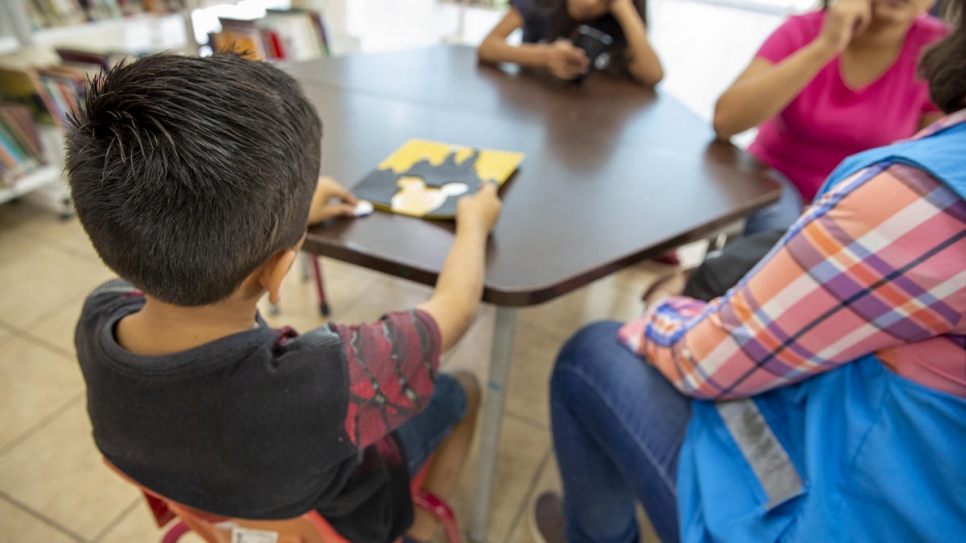Ground-breaking programme reunites families, reignites hope
UNHCR's 'holistic' integration project helps refugees find jobs, education, homes and help towards naturalization.
Claudia* and her son Samuel* browse books at the Biblioparque library in Saltillo, Mexico.
© UNHCR/Arturo Almenar
After his mother fled El Salvador following a barrage of death threats, her son – little Samuel* – was also forced to go on the run.
Samuel, 7, missed more than a year of school as he slipped from house to house with his grandma, staying one step ahead of the gangs targeting the family.
Now, he and his sister, Maité,* 11, have been reunited with their mother Claudia* in Saltillo, a city of around 800,000 inhabitants in northeastern Mexico. Thanks to a ground-breaking UNHCR integration programme they – unlike most refugee children from Central America – are back at school, attending classes at a local public elementary and quickly making up for lost time.
"I hope that all the sacrifices are worth it.”
Even their mother is in college, pursuing a degree in industrial engineering. This should enable her to find a job in the area very soon.
“Sometimes it’s very hard as a single parent to balance work and school, but I hope that all the sacrifices are worth it,” said Claudia, 31, who had dropped out of college more than a decade earlier to bring up her children.
In 2017, UNHCR, the UN Refugee Agency, estimated that in Mexico’s southernmost states – where most of the Central American refugees seeking safety from gangs wreaking havoc in El Salvador, Honduras and Guatemala are concentrated – only 18 per cent of refugee children attend school.
This is despite legislation that guarantees all children on Mexican soil the right to enrol in state schools, regardless of their immigration status and the fact that access to education is a fundamental human right.
UNHCR believes strongly that investing in the education of refugees is the most powerful way to help them become self-reliant. It is also central to the development of the places that have welcomed them, and to the future prosperity of their own countries if they return. But host countries need support to help bring this about.
In Saltillo, it is already a different story. For refugees relocated here, UNHCR identifies suitable jobs for adults, assists in enrolling children in school and provides psychosocial support. Refugees also get legal help in acquiring naturalization, which normally happens within two years, and in obtaining their own home, which happens within three.
“Here, we say that the only people who aren’t working or studying are those who choose not to,” said Ana Lorena Galindo Cepeda, who heads UNHCR’s field office in the city. “We’re able to give 100 per cent of people we work with education options.”
The faster refugees are integrated into the labour force, the faster they can become productive members of society. This eases pressure on the host communities and contributes to economic growth.
UNHCR’s Relocation, Employment and Local Integration programme in Saltillo sees about 40 refugees relocated each week from cities in southern Mexico, where they had slim education and job prospects. Here, the opposite is the case. Some 92 per cent of the refugees coming here find a job, 100 per cent of school-age children are enrolled in class and 60 per cent are out of poverty within the first year.

Claudia* and her children Samuel* and Maité* browse books at the Biblioparque library in Saltillo, Mexico. © UNHCR/Arturo Almenar
After Claudia slipped out of El Salvador in 2016, she made her way to Coatzacoalcos, on the southern tip of Mexico’s coastal state of Veracruz. Working odd jobs, she scraped together enough money to bring her two children from San Salvador.
Once she had been selected for UNHCR’s integration programme, Claudia and the children were relocated to Saltillo. They have prospered.
Claudia has a full-time factory job putting together washing machines on an assembly line. But because UNHCR funds her tuition, she can spend Saturdays attending classes for her degree course, which she hopes will ignite her career.
For Maité, the move brought a substantial improvement in the quality of her education. “There [in San Salvador], school was easier and less demanding,” she said. “Here, the teachers are more demanding and want us to read and write more.” But she has risen to the task. Last year, she was honoured as the top student in her 4th-grade class. “I’m usually number one but sometimes I’m number two,” she said with a shy smile.
Initiatives like the one in Saltillo will be discussed at a landmark meeting in Geneva this December.
The Global Refugee Forum (GRF) will bring together governments, international organizations, local authorities, civil society, the private sector, host community members and refugees themselves with the aim of easing the burden of hosting refugees for host communities, boosting refugee self-help and reliance, and increasing opportunities for resettlement. Education and jobs are critical to the successful integration of refugees to host communities and can lead to win-win outcomes for both sides.
*Names have been changed for protection reasons.


